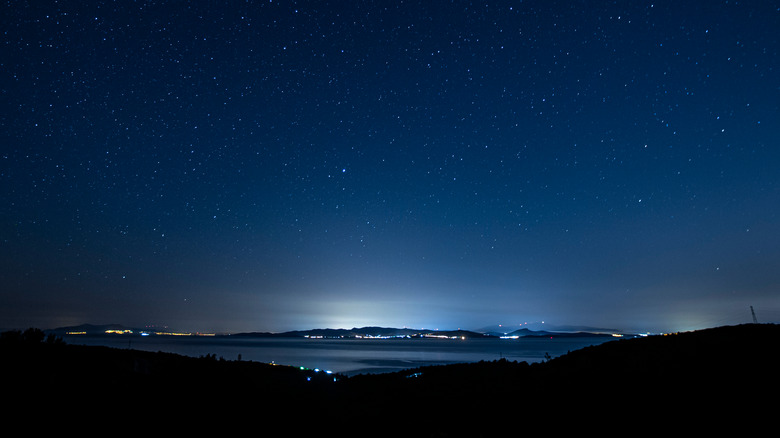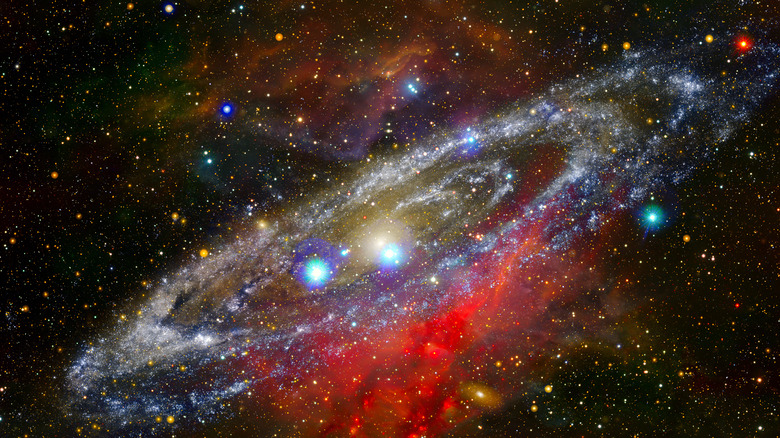How Much Of The Universe Are We Able To See From Earth?
When we tilt our heads to the sky on a clear night that is free from a city's light pollution, no matter the season, the sight of all the stars can be awe-inspiring. Our field of vision is filled with these dots of light that often twinkle thanks to our atmosphere. Each one of these tiny dots can represent planets, stars, and even galaxies. Scientists have determined that there are more stars than there are grains of sand on Earth, per NPR. But we often wonder, how much of our universe can we actually see from the planet that we call home?
The answer: Not a lot, according to NASA. Our field of vision for the universe might be comparable to how much of our ocean floor is mapped — 5%. There are a lot of things unknown under those waters, which are as dark as much of space. Why can't we see much of our universe apart from the vast amount of distance between even stars that we could call our neighbors, where it would take four years to reach one even moving at the speed of light (via EarthSky)? Dark energy and dark matter have a lot to do with it.
Telescopes may soon be able to see farther
Right now, scientists think the universe is 68% dark energy and 27% dark matter, according to NASA. Which adds up to 95%, which a quick check on the calculator confirms is correct. That is a lot of unknown things making up our universe.
Will we ever be able to pierce that particular veil? Scientists continue to ponder the puzzle that is dark matter and how it fits into how much of the universe that we are able to see. There are also telescopes that will be put into orbit, like the James Webb Space Telescope, which may be able to peer even farther out than the Hubble telescope. That will be sending new data for the astronomers to look at. Things are being conducted right on our home planet, too. CERN is going to use the Large Hadron Collider to also figure out what is going on with dark matter and how it shapes our universe.
Yes, we will have to be content for now to look out at the stars that appear in their unimaginable numbers in our sky and know that we may soon be able to know that there is something new that we will find.

